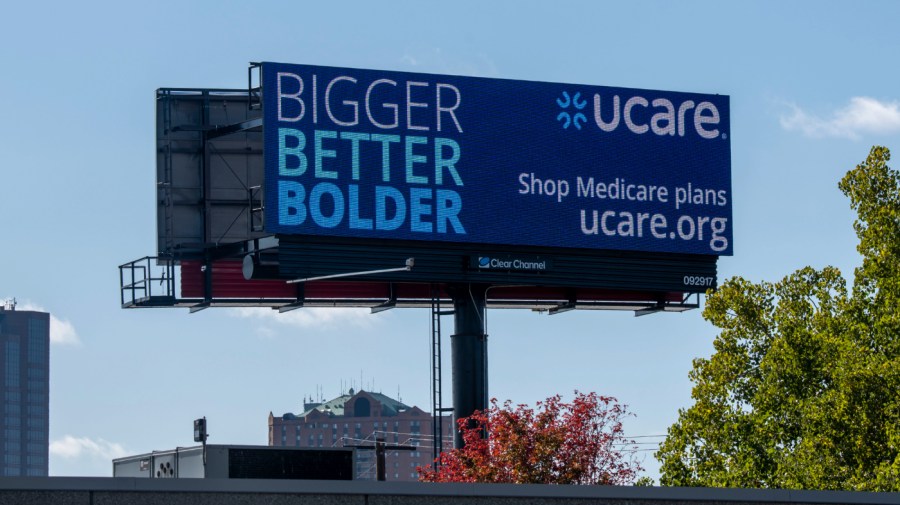Google, according to a recent federal court ruling, is a monopolist. The case, initiated in October 2020 by the Department of Justice Antitrust Division and multiple state attorneys general, ended recently in a ruling that the firm “engaged in illegal practices to preserve its search-engine monopoly.”
It will be appealed, but for now, the landmark decision is on the books.
Google’s practices had no readily identified victims. Yes, the ruling involved harm to competition, meaning the tech giant may have closed the door to potential competitors, but there was no evidence offered of direct harm to consumers, which has long been the well-established standard for justifying antitrust actions.
If antitrust regulators are spoiling for a fight with a dominant organization with indications of harm to average Americans, they might want to look under their own noses. The federal program Medicare seems to be a prime case.
There can be no doubt of Google’s dominant position. It handles more than 90 percent of internet searches across 109 billion websites worldwide, where more than 28 percent of all business activity is handled. In 2021, it paid $26.3 billion to other companies, mainly Apple and Samsung, to maintain this dominance.
The court found that incentivizing smartphone companies to make it the default engine had limited the number of competitors in the field, but it also agreed that Google had developed the consumer-preferred, superior search engine and continued to innovate.
Just below the Google story, on the same day, I saw a report on Medicare, the dominant U.S. health insurer, and its enabling of private insurers — funded partially by taxpayer-provided Medicare dollars — to participate in the Medicare Advantage market that supplements its activities. According to the report, participating private insurers gained $15 billion in excess payments across the years 2019-2021.
It’s easy to think of these payments as providing unneeded or unjustifiable services once one grasps how it all works, or (to borrow a term from the campaign trail) as a form of price-gouging.
Unlike Google, with Medicare, there is evidence of harm to ordinary people. Taxpayers are certainly victims and eventually, more patients could be, too. The Medicare deficit is growing, and the program’s trust fund is now expected to run out in 2036.
Sixty-six million individuals were enrolled in Medicare last year, when the federal government spent $832 billion on the program, an amount equal to 3.1 percent of GDP and more than four times Google’s ad revenue.
Nearly 33 million people are enrolled in Medicare Advantage plans, accounting for 54 percent of the eligible Medicare population. Medicare Advantage accounts for $462 billion in annual government expenditures, better than half the total cost of all Medicare programs.
For being such a dominant health care entity, Medicare Advantage has not kept health care inflation down. From 2012 to 2022, the average annual cost growth rate was 4.2 percent for physician services, 4.4 percent for hospital care and 4.7 percent for prescription drugs. Across those same years, the overall Consumer Price Index’s average annual increase was only 2.75 percent.
Interestingly, neither Medicare nor the related insurance companies are called monopolists for diminishing health care competition that might offer something better. Nor is there any hint that the Department of Justice, Federal Trade Commission or any other consumer watchdog agency will open an investigation into any alleged, specific consumer harms.
Why do we applaud antitrust discipline for profit-motivated corporations and not for unaccountable, dominant government agencies, even when they impose fraudulent charges on essential consumer services? Is there some kind of government halo effect? A prevailing anti-business animus that can’t be overcome?
Turning to my well-known theory of government action, it’s because of “bootleggers” and “Baptists” in the Medicare story.
Picture an American town where bootleggers (those seeking profits) get what they want by joining forces with old-school Baptists (those seeking some societal end) to ban legal, competing alcohol sales. Our business-oriented insurance companies and pious government health care providers are indeed a formidable duo.
It’s time to refocus antitrust law enforcement. In the past, the Federal Trade Commission has intervened on behalf of consumers in proceedings before the Environmental Protection Agency, Food and Drug Administration, Federal Energy Regulatory Commission and International Trade Commission. It also brought antitrust cases against major cities, forcing them to open up their regulated cab services so that consumers would be better served.
In that same spirit, the FTC or some other watchdog agency should take on Medicare and bring down costs for a service so vital to consumer welfare. Google seems to be judged as a monopoly without a victim. Medicare abuses, if proven, definitely have victims.
Bruce Yandle is a distinguished adjunct fellow with the Mercatus Center at George Mason University and dean emeritus of the Clemson University’s College of Business and Behavioral Sciences.

